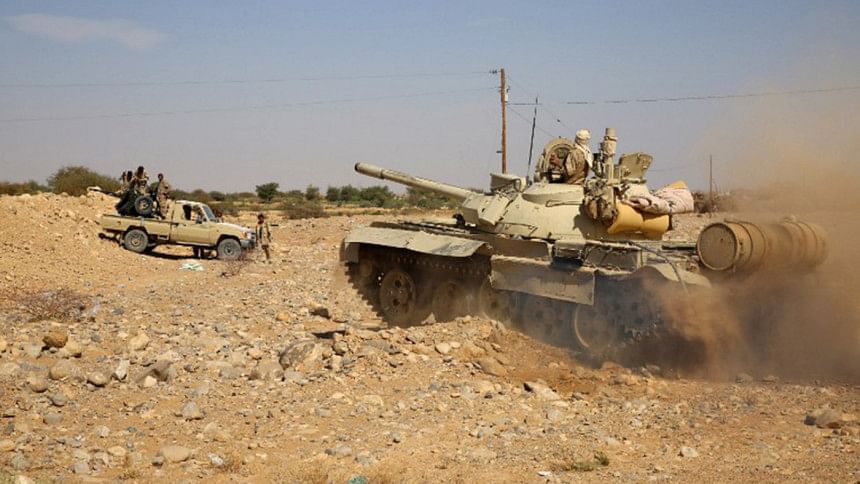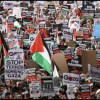Fierce fighting in northern Yemen kills 75

Fierce fighting and airstrikes by a Saudi-led coalition pounded northern Yemen on Saturday, as the two main parties in the country's conflict continued to violate a ceasefire agreement and undermine already tenuous peace talks in Switzerland.
The clashes in Hajjah Province near the Saudi border between rebel-allied units and pro-government Yemeni forces have killed more than 75 over the past three days, Yemeni security officials and witnesses said. The dead included more than 40 rebels and 35 government troops, with 50 wounded on the rebel side and dozens wounded on the government side. Dozens of tanks and armored vehicles were destroyed, according to the witnesses and security officials, who remain neutral in the conflict that has splintered the Arab world's poorest country.
The government troops advanced across the border from Saudi territory after training there for months, the officials said, speaking on condition of anonymity as they were not authorized to brief reporters.
Yemen's fighting pits the internationally recognized government backed by a Saudi-led, US-supported coalition against the rebels, known as Houthis, who are allied with a former president and backed by Iran. Local affiliates of al-Qaida and the Islamic State group have exploited the chaos to grab land and exercise influence.
According to UN figures, the war in Yemen has killed at least 5,884 people since March, when fighting escalated after the Saudi-led coalition began launching airstrikes targeting the rebels.
Fighting in Yemen has continued despite a weeklong cease-fire agreement that went into effect on Tuesday. By Wednesday, at least 42 people had been killed in clashes along several front lines, underscoring the difficulties of achieving progress at the UN-brokered peace talks in the Swiss village of Macolin.
On Friday, the Yemeni rebel delegation suspended meetings with the internationally recognized government in protest over its cease-fire violations. The Houthis said they would not resume talks unless the UN condemned breaches by government forces, delegates at the talks told AP.
A member of the Houthi delegation said UN special envoy Ismail Ould Cheikh Ahmed had "promised to condemn the government and then he did not."
A government delegate said: "They are using the ceasefire as an excuse although they were the first to break it." Both officials spoke on condition of anonymity in line with regulations.
The UN has urged all factions in the conflict to end the violence and is pressing to keep the talks going.
By late Saturday night, the continued combat was already impacting the negotiations. The Houthis had earlier agreed to permit humanitarian aid deliveries into the besieged city of Taiz as well as the cities of Saada and also Hajjah, the capital of the province where the fresh fighting was taking place.
But the rebels then canceled a planned release of five high-profile prisoners they had agreed to earlier in the day as a measure of good will, as well as their decision to lift the siege of Taix, Houthi and pro-government officials at the talks said.
The five prisoners, including Defense Minister Mahmoud Subaihi and Gen. Nasser Mansour Hadi, brother of President Abed Rabbo Mansour Hadi, were to have been handed over to the Red Cross on Saturday.
But officials at the talks from the Houthi delegation as well as from the government side said the Houthis would not release the prisoners unless the UN consolidates the cease-fire. The participants spoke anonymously since they were not authorized to brief reporters.

 For all latest news, follow The Daily Star's Google News channel.
For all latest news, follow The Daily Star's Google News channel. 








Comments